Lexham Context Commentary: Old Testament (5 vols.)
Digital Logos Edition
Never Take a Verse Out of Context Again
Seeing the thought flow of a given biblical text is essential to properly understanding its place within Scripture.
The Lexham Context Commentary: Old Testament is designed to guide readers through the literary context of the Bible, especially the contextual thought flow at each level of a book’s organization. Each book of the Old Testament is clearly outlined and structured, and commentary is provided on increasingly more specific segments of the text, from the book to its major divisions to sections to paragraphs to verses. Readers will gain quick access to the literary thought flow of a Old Testament book at whatever level they wish to dip in.
The Lexham Context Commentary: Old Testament covers several levels of OT context, from whole sections of the OT all the way down to individual verses. The upper levels for the entire OT were shipped at launch. The remaining content and the general and section introductions will be shipped once they are completed.
Learn more about the Lexham Context Commentary: New Testament.
This title is included in the following collections
You can save when you purchase this product as part of a collection.
Lexham Context Commentary (8 v...
$299.99$299.99MP Seminars Study Bundle, S
$649.99$649.99Verbum 10 Bilingüe (Español/En...
$699.99$699.99Lexham Press Biblical Studies ...
$999.99$999.99
- $999.99
- $1,099.99
- $1,499.99
- $2,499.99
Top Highlights
“The father wants his son to know, however, that the wisdom that he passes on is not merely his own, but ultimately comes from God and is the wisdom that God used to create the world (8:1–36). The implication is that God’s wisdom is ingrained in the creation.” (Proverbs 1:8–8:36)
“The primary message of chapters 1–39 is that Yahweh, because of his amazing love for his people, will send the rebellious nation of Israel through severe punishments until a righteous remnant emerges. The wicked will be purged away, and the righteous remnant will arise to live in peace and safety in a glorified Zion. This message is repeated in each of its three sections, increasing in detail with each repetition. The structure of Isaiah is much less chronological than it is thematic; for instance, Isaiah’s call does not appear until chapter 6.” (Isaiah 1:1–39:8)
“Chapters 40–43 contain a clear message of encouragement to a righteous remnant who return from exile around 539 BC, almost 150 years after Isaiah. Chapter 40 begins the section by encouraging the Israelites that God will rescue them from the Babylonian exile. Because the hope of deliverance had grown dim for many, the prophet reassures them by answering two very important questions: (1) Is God willing to deliver the exiles? The author offers strong assurance that God still loves them and is willing to deliver them. (2) Is God able to deliver the exiles? The author affirms that this same God, who created the world and reigns over all creation, is certainly able to deliver them from captivity.” (Isaiah 40:1–43:28)
Context is King
Traditional commentaries offer a wealth of information, but an explanation of the author’s flow of thought—how the parts relate to the whole—can get buried in detailed discussions of secondary literature, word usage, and historical background. The notes found in the Lexham Context Commentary deal with the text alone, leaving aside discussions of the opinions of other interpreters or of extra-biblical information from social, cultural, and historical background. The result is a concise, focused view of the biblical text that reveals the literary context of any given Old Testament passage.
- Careful, Quick Summaries: Read a summary of any passage in the Old Testament, no matter the size—from major divisions to paragraphs to verses. The Lexham Context Commentary is like a heavily annotated outline of the entire Old Testament. Zoom in as close—or out as far—as you want, and you’ll get a short, reliable description of wherever you are.
- Genre Introductions: Section introductions will acquaint you with the major genres of literature in the Old Testament, helping you read each book in keeping with what kind of book it is, from history to wisdom to prophets. Plus, a general introduction by Leland Ryken illustrates why the Bible should be read and interpreted as literature.
Product Details
- Title: Lexham Context Commentary: Old Testament
- Editors: Douglas Mangum and Steven Runge
- Publisher: Lexham Press
- Publication Date: 2020
- Volumes: 5
- Format: Logos Digital
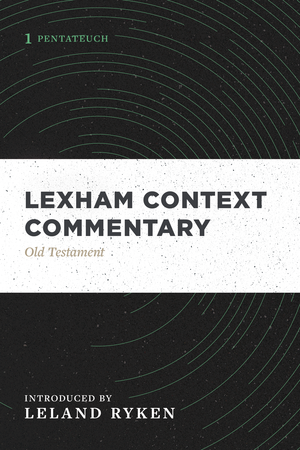
Volume 1: Pentateuch
- Publisher: Lexham Press
- Publication Date: 2020
Contents
- Introduction by Mark Ward
- Why We Need to Read and Interpret the Bible as Literature by Leland Ryken
- Reading Narrative History: What You Need to Know
- Reading Pentateuchal Law: What You Need to Know
- Genesis by Josh Mathews
- Exodus by Neal Huddleston
- Leviticus by Richard Averbeck
- Numbers by Dale Brueggemann
- Deuteronomy by Daniel Block
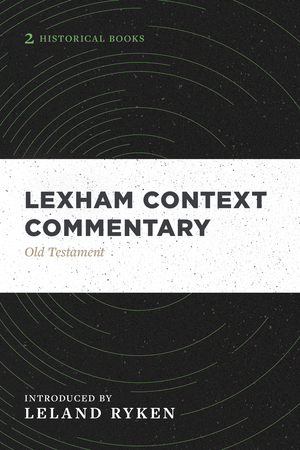
Volume 2: Historical Books
- Publisher: Lexham Press
- Publication Date: 2020
Contents
- Reading Narrative History: What You Need to Know
- Joshua by Thomas Middlebrook
- Judges by Michelle Knight
- Ruth by Adam Howell
- 1–2 Samuel by Robert Chisholm
- 1–2 Kings by Daniel Block
- 1–2 Chronicles by Daniel Hart and Amy Balogh
- Ezra and Nehemiah by T.J. Betts
- Esther by Philip Penhallegon
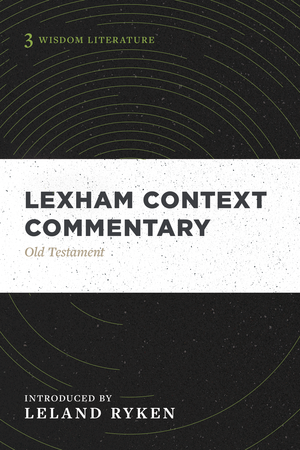
Volume 3: Wisdom Literature
- Publisher: Lexham Press
- Publication Date: 2020
Contents
- Reading Biblical Poetry and Wisdom Literature: What You Need to Know
- Job by Kevin Chau and Brian Collins
- Psalms by Neal Huddleston
- Proverbs by John V. Fesko
- Ecclesiastes by Kyle Dunham and Neal Huddleston
- Song of Songs by Iain Provan
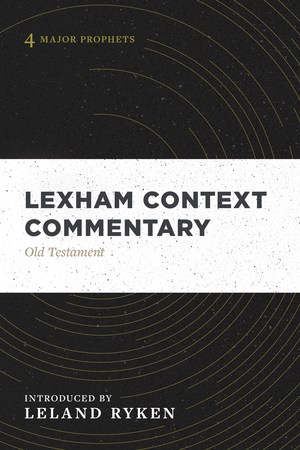
Volume 4: Major Prophets
- Publisher: Lexham Press
- Publication Date: 2020
Contents
- Reading Biblical Prophecy and Apocalyptic Literature: What You Need to Know
- Isaiah by Paul Wegner
- Jeremiah by Matthew Patton and Tom Parr
- Lamentations by Ken Casillas
- Ezekiel by Guy Prentiss Waters
- Daniel by Wendy Widder
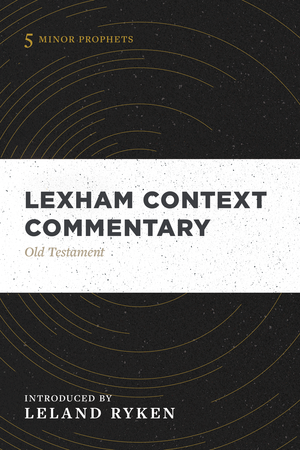
Volume 5: Minor Prophets
- Publisher: Lexham Press
- Publication Date: 2020
Contents
- Reading Biblical Prophecy: What You Need to Know
- Hosea, Joel, Amos, Obadiah, Nahum, and Habakkuk by Joanna Hoyt and Neal Huddleston
- Jonah by Daniel Block
- Micah by Mark Gignilliat
- Zephaniah and Haggai by T.J. Betts
- Zechariah by Michael Barrett
- Malachi by William Pohl
About the Editors
Douglas Mangum is an academic editor for Lexham Press. He holds a PhD in Hebrew from the University of Free State and holds an MA in Hebrew and Semitic Studies from the University of Wisconsin–Madison. He is a Lexham English Bible and Lexham Research Commentary editor, a Faithlife Study Bible contributing editor, a Studies in Faithful Living co-author, a regular Bible Study Magazine contributor, and a frequently consulted specialist for the Lexham Bible Dictionary.
Steven E. Runge has a Master of Theological Studies degree in Biblical Languages from Trinity Western Seminary in Langley, B.C., Canada, a BA in Speech Communication from Western Washington University, and a Doctor of Literature degree in Biblical Languages from the University of Stellenbosch in South Africa. Steve presently serves as a Scholar-in-Residence at Faithlife.